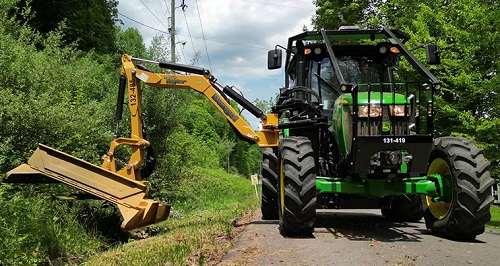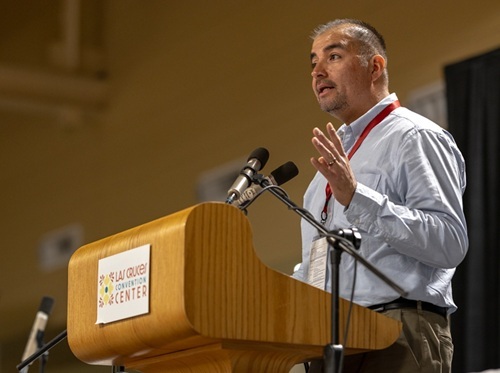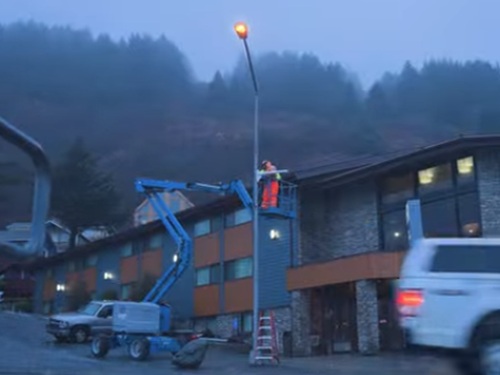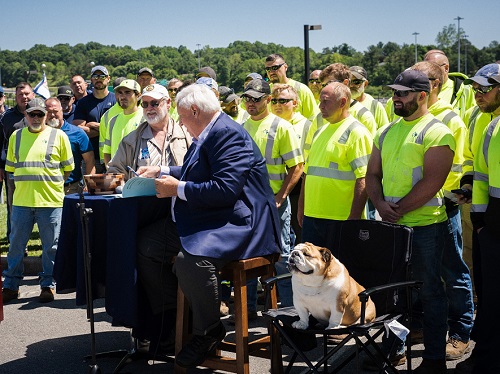Governor Jim Justice (R) recently signed Senate Bill 1002, which gives the West Virginia Division of Highways – part of the West Virginia Department of Transportation – $150 million in supplemental highway funding for paving projects throughout the Mountain State.
[Above photo by WVDOT]
Gov. Justice asked the legislature to approve the extra funding during the first special legislative session in May; state money that is in addition to the $190 million received by the WVDOT in federal highway funds.

“Signing this bill is a huge win for our roads, our people, and West Virginia,” the governor noted in a statement. “With federal funds only stretching so far, this additional $150 million means our hardworking Division of Highways crew can roll up their sleeves and tackle even more roads.”
“[Gov. Justice] has demonstrated time and again that investing in our infrastructure pays dividends for our citizens,” noted WVDOT Secretary Jimmy Wriston. “By calling the legislature back for a special session to appropriate surplus funds for highway paving, our great people will continue to reap the rewards of a highway system that serves them well.”
[Editor’s note: WVDOT’s Wriston was the subject of the latest “State DOT 2-Minute Update” produced by the American Association of State Highway and Transportation Officials.]
In the past, WVDOT typically used a portion of supplemental budget appropriations for new equipment. However, for 2024, the agency plans to use the funding solely for additional paving projects throughout the state.
In all, this particular supplemental budget appropriation will pay for 499 paving projects on more than 973 miles of road that aren’t covered by federal highway funds, the agency said.

In May, Gov. Justice and the West Virginia Legislature provided the WVDOT with a supplemental budget application to help the agency buy 110 new John Deere tractor mowers that are being deployed across state’s 10 highway districts.
The tractor mowers, with a unit cost of about $122,000, are paid for through a supplemental budget allocation requested the governor and approved by the legislature. They are slated primarily for use on West Virginia’s secondary roads, the agency added.
WVDOT noted that interstates and expressways are mowed at least three times a year, with secondary roads mowed at least twice annually. The goal with the addition of the new mowers is to have even small, rural, low-traffic roads mowed at least once each year.
 States
States
Serna Stepping Down as Secretary of NMDOT
February 13, 2026 States
States

